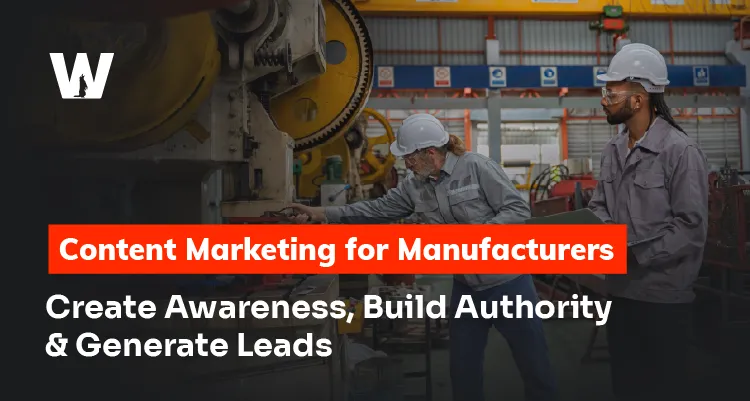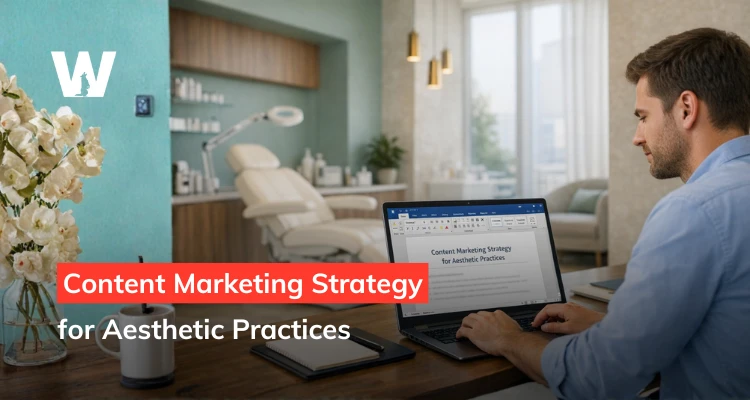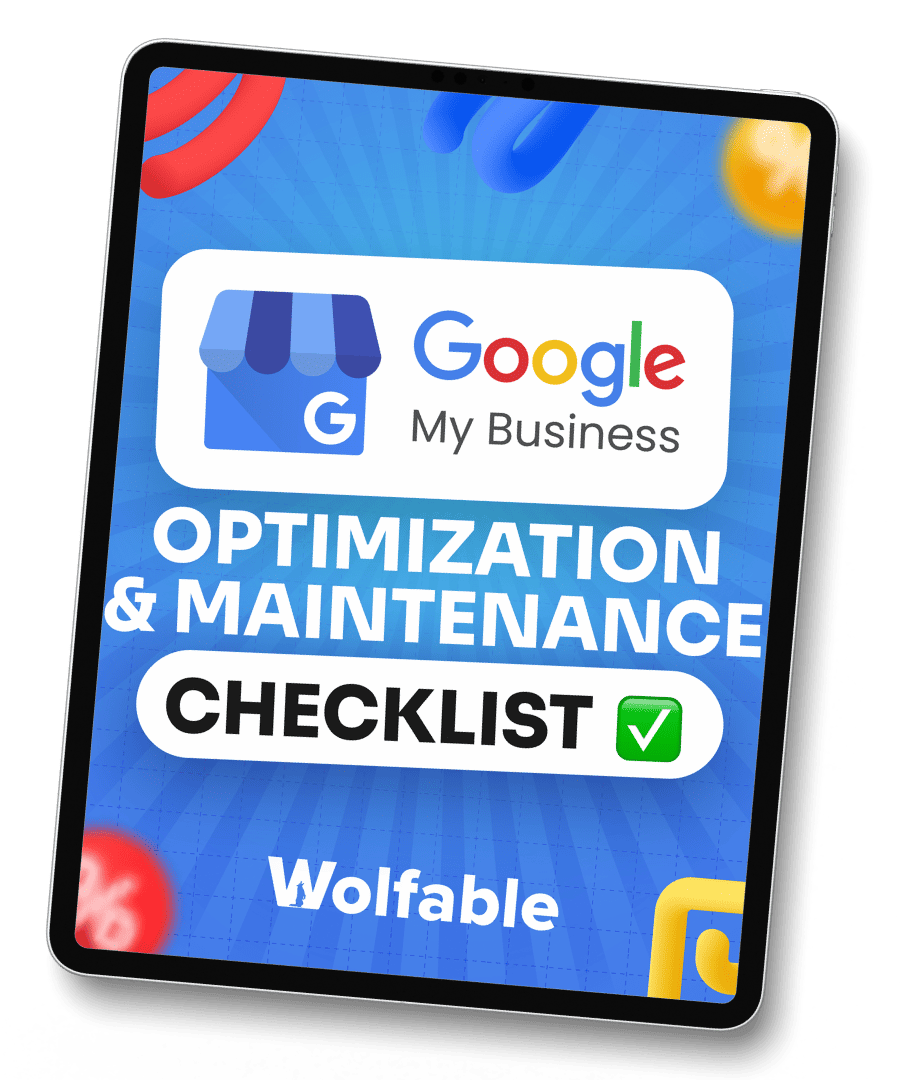Wraps up in 12 Minutes
The manufacturing landscape has changed. Your potential buyers aren't waiting for your sales calls. They're researching solutions online long before they contact any vendor.
Here's a fact: B2B buyers complete nearly 70% of their purchase journey before engaging with sales teams.
Are you still relying on trade shows, cold calls, and print catalogues? Then you're missing buyers at the most critical stage—when they're actively searching for solutions.
Content marketing solves this problem. It positions your expertise exactly where buyers are looking.
At Wolfable, we've helped manufacturing clients like Jaykrishna Magnetics achieve remarkable results:
This isn't about writing random blog posts. It's about creating a systematic approach that turns your technical expertise into a lead-generation engine.
This guide shows you exactly how to leverage content marketing. You'll learn to create awareness, establish authority, and generate qualified leads for your manufacturing business.
What Is Content Marketing for Manufacturers?
Content marketing for manufacturers means creating valuable information that addresses your target audience's challenges. It works at every stage of their buying journey.
Unlike traditional advertising that interrupts, content marketing attracts by providing genuine value.
Think about it this way:
- A pump manufacturer creates technical guides on selecting the right pump
- An industrial machinery producer shares video demonstrations of equipment in action
- A precision parts manufacturer publishes case studies proving their quality standards
The goal is simple: be present with helpful information when potential buyers search for solutions.
Manufacturing presents unique content opportunities. Why? Because your products solve complex, technical problems.
Buyers need:
- Education on specifications
- Comparisons between options
- Proof of performance
- Technical guidance
All of these are ideal content topics. They position you as the expert solution provider.
Why Does Content Marketing Matter for Manufacturing Companies?
1. The Buying Journey Has Changed Completely
Modern B2B buyers conduct extensive online research first. They compare specifications. They read case studies. They watch product videos. They evaluate expertise through published content.
If you're not creating this content, your competitors are. And they're capturing those buyers first.
Manufacturing sales cycles are long and complex. Content marketing keeps you visible throughout this extended journey. It nurtures prospects with valuable information until they're ready to engage.
2. Traditional Methods Are Losing Effectiveness
Trade shows still have value. But they're expensive and reach limited audiences.
Cold calling faces increasing resistance.
Print advertising reaches fewer decision-makers each year.
Meanwhile, search engines and digital platforms are where buyers actively look for manufacturing solutions.
Content marketing provides 24/7 visibility. A single well-optimized blog post can generate qualified leads for years. Video demonstrations can showcase your capabilities to global audiences without travel costs.
3. Your Technical Expertise Is Your Greatest Asset
Manufacturers possess deep technical knowledge. Buyers desperately need this knowledge.
Content marketing transforms this expertise into trust, authority, and business relationships.
When you consistently demonstrate understanding of customer challenges, you become the obvious choice. When you provide actionable solutions, buyers remember you.
How Content Marketing Creates Awareness for Manufacturing Brands
1. Being Found When Buyers Are Searching
Awareness begins with visibility.
When potential buyers search for "industrial pump solutions for chemical processing" or "precision machining services for aerospace," your content should appear in results.
This is where SEO and content marketing intersect powerfully.
Strategic content creation means identifying the exact questions your ideal customers ask. Then create authoritative answers.
Manufacturing buyers use specific technical terms. Incorporate these naturally into your content to match their search behaviour.
Wolfable's manufacturing clients consistently see traffic increases of 200-400%. How? By creating search-optimized content that addresses real buyer questions.
This isn't accidental. It's the result of strategic keyword research and content planning.
2. Expanding Your Reach Beyond Local Markets
Traditional marketing often limits manufacturers to regional markets.
Content marketing removes geographic boundaries.
A comprehensive product guide can attract international buyers who might never have found you otherwise.
A technical comparison reaches decision-makers across continents.
Video content on platforms like YouTube allows you to demonstrate complex machinery to global audiences. Buyers in different countries can evaluate your capabilities. No expensive travel required. No initial meetings needed.
3. Building Consistent Brand Presence
Awareness isn't created through one-time efforts. It requires consistent presence across multiple channels.
This means:
- Publishing regular blog posts
- Sharing insights on LinkedIn
- Creating technical videos
- Distributing valuable resources
This consistent presence creates familiarity. When buyers eventually need your solutions, your brand is already recognized and trusted. Why? Because they've benefited from your content repeatedly.
Looking to increase your manufacturing brand's online visibility? Check out our detailed guide: How Manufacturers Can Use YouTube to Attract Global Buyers
How Content Establishes Your Manufacturing Expertise
1. Demonstrating Technical Knowledge That Matters
Authority in manufacturing isn't about generic marketing messages. It's about proving you understand the technical complexities your buyers face.
Detailed technical guides demonstrate this expertise. Specification comparisons show your depth. Application-specific content proves your knowledge.
These work better than any sales pitch.
When you publish content that solves actual problems, you're showing buyers something important. You don't just manufacture products. You understand their challenges deeply.
Examples:
- "How to Select the Right Material for High-Temperature Applications"
- "5 Critical Factors in Hydraulic System Design"
- "Troubleshooting Common Issues in CNC Machining"
2. Creating Educational Resources Buyers Actually Use
The most powerful authority-building content provides genuine utility.
Buyers bookmark it. They share it with colleagues. They return to it repeatedly.
This might include:
- Technical white papers on industry challenges
- Specification guides that help buyers make informed decisions
- Troubleshooting resources for common problems
- Process optimization frameworks that improve operations
- Compliance checklists for regulatory requirements
Each piece of educational content positions you as a trusted advisor. Not just another vendor.
This distinction is crucial in complex B2B manufacturing sales.
3. Showcasing Real-World Results Through Case Studies
Nothing builds authority like proof.
Case studies documenting how you've solved specific challenges provide powerful validation. They answer the critical buyer question: "Can they actually deliver what they promise?"
Effective manufacturing case studies include:
- Specific metrics (reduced downtime by 34%, increased output by 22%)
- Detailed problem descriptions
- Clear explanations of your solution approach
- Client testimonials
This combination of storytelling and data creates compelling authority signals.
At Wolfable, we've seen how case studies showing real results become powerful lead generation tools. Buyers want proof. Detailed case studies provide exactly that.
For example: helping Sujal Engineering achieve 277% growth in organic leads attracted similar manufacturers facing export challenges.
4. Leveraging Multiple Content Formats
Authority isn't built on blog posts alone. Different buyers consume content differently:
- Video demonstrations show your products and processes in action
- Podcasts or webinars allow deep-dive discussions on industry topics
- Infographics make complex data digestible and shareable
- Email newsletters keep your expertise top-of-mind with subscribers
Multi-format content reaches more buyers. It reinforces your authority across different touchpoints.
Lead Generation Through Manufacturing Content Marketing
1. Creating Content for Every Stage of the Buyer Journey
Effective lead generation requires content mapped to three distinct stages:
Awareness Stage (Problem identification)
- Industry trend articles
- Educational blog posts
- Problem-focused guides
- Comparison content
Consideration Stage (Solution evaluation)
- Product specification sheets
- Application guides
- Vendor comparison resources
- Technical white papers
Decision Stage (Vendor selection)
- Case studies with ROI data
- Customer testimonials
- Detailed product demonstrations
- Implementation guides
Remember: Not every piece of content generates immediate leads. Awareness content builds traffic and visibility. This eventually converts through consideration and decision-stage content.
2. Using Gated Content Strategically
High-value content assets can be "gated" behind forms. This captures lead information.
This works best for substantial resources buyers genuinely need:
- Comprehensive specification guides
- Industry research reports
- Detailed calculators or selection tools
- Video training series
- Exclusive case study collections
The key is value exchange. Buyers will provide contact information for resources that genuinely help them.
Don't gate basic information. That creates friction and damages trust.
3. Optimizing Content for Conversion
Lead generation isn't just about traffic. It's about converting visitors into contacts.
Every piece of content should include clear next steps:
- Contextual CTAs that relate directly to the content topic
- Multiple engagement options (download resources, schedule consultations, request quotes)
- Easy contact methods with minimal form fields
- Clear value propositions explaining what happens next
Example: A blog post about selecting industrial pumps might include CTAs like "Download Our Complete Pump Selection Guide" or "Schedule a Consultation with Our Engineering Team."
4. Nurturing Leads with Email Content
Once you've captured leads, email content keeps you engaged. This is crucial through the lengthy manufacturing sales cycle.
This might include:
- Educational series on relevant topics
- New product or capability announcements
- Industry insights and trend analyses
- Invitations to webinars or events
- Exclusive content and early access offer
Email marketing for manufacturers isn't about aggressive sales pushes. It's about maintaining relationships and providing continued value. Do this until prospects are ready to engage.
10 Types of Content That Work Best for Manufacturing Companies
1. Blog Posts and Articles: The Foundation
Regularly published blog content serves multiple purposes:
- SEO visibility
- Thought leadership demonstration
- Ongoing engagement
Effective manufacturing blog topics include:
- Problem-solving guides ("How to Reduce Downtime in CNC Machining")
- Industry trend analysis ("5 Manufacturing Trends Reshaping the Industry")
- Technical explainers ("Understanding Tolerances in Precision Manufacturing")
- Process optimization tips ("Improving Supply Chain Efficiency in Manufacturing")
Aim for 1,500-2,500 word articles that provide genuine depth. Short, superficial posts don't build authority. They don't rank well in search results either.
2. Video Content: Show, Don't Just Tell
Manufacturing is inherently visual. Video content allows you to demonstrate capabilities that text alone can't convey:
- Product demonstrations showing equipment in operation
- Factory tours building trust through transparency
- Process explanations making complex procedures understandable
- Customer testimonials adding authenticity and social proof
- Technical tutorials providing educational value
YouTube serves as a powerful search engine for manufacturing buyers.
Wolfable has helped clients generate over 1 million views. How? By creating strategic video content that addresses specific buyer questions.
3. Case Studies: Proof That Converts
Detailed case studies documenting client successes provide the social proof manufacturing buyers need.
Structure them with:
- Clear problem statements that resonate with similar buyers
- Specific solution descriptions showing your approach and capabilities
- Quantified results with exact metrics (not vague "improved efficiency")
- Client testimonials adding authenticity
- Technical details demonstrating expertise
Case studies work across the entire buyer journey. From building awareness to closing deals.
4. Technical White Papers and Guides
In-depth technical content positions you as the industry expert.
White papers work particularly well when they address:
- Emerging technologies and their applications
- Compliance and regulatory guidance
- Material selection and specification
- Design optimization principles
- Industry best practices and standards
These substantial resources are ideal as gated content for lead capture.
5. Infographics and Visual Content
Complex manufacturing data becomes digestible through visual representation.
Infographics are highly shareable. They work well for:
- Process workflows and decision trees
- Statistical industry data
- Product comparisons and specifications
- Troubleshooting guides
- Historical trends and projections
6. LinkedIn and Social Media Content
B2B buyers are active on LinkedIn. Consistent posting builds authority and keeps your brand visible:
- Share blog posts and company updates
- Post industry insights and commentary
- Showcase customer success stories
- Highlight team expertise and culture
- Engage with industry discussions
Learn more about leveraging social platforms: Leveraging Social Media for Manufacturing Brands
7. Email Newsletters
Regular email communication keeps you top-of-mind with prospects. It nurtures leads through long sales cycles.
Effective newsletter content includes:
- Curated industry news
- New blog post highlights
- Exclusive technical tips
- Product updates
- Event invitations
8. Webinars and Live Demonstrations
Live content creates engagement and immediacy. It allows real-time interaction with potential buyers.
Topics might include:
- Product demonstrations
- Industry trend discussions
- Technical training sessions
- Q&A with engineering teams
9. Customer Testimonials and Success Stories
Short-form success content provides quick social proof. Unlike full case studies, these are:
- Brief (2-3 paragraphs)
- Easy to consume
- Shareable across platforms
- Perfect for social media
10. Interactive Tools and Calculators
Provide immediate value while capturing leads:
- ROI calculators
- Product selection tools
- Specification comparators
- Cost estimators
These tools position you as helpful first, salesy second.
Creating an Effective Content Marketing Strategy for Your Manufacturing Business
Step 1: Start With Buyer Research and Understanding
Effective content marketing begins with deep understanding of your target buyers.
Ask these questions:
- What challenges do they face? What keeps them up at night?
- What questions do they ask? What information do they search for?
- What criteria drive their decisions? What matters most in vendor selection?
- Where do they consume content? What platforms and formats do they prefer?
Survey existing customers. Interview sales teams. Analyze search data. Build detailed buyer personas and content needs.
Step 2: Conduct Keyword and Topic Research
Strategic content isn't based on guesswork. Research shows exactly what your buyers are searching for:
- Use keyword research tools to identify high-value search terms
- Analyze "People Also Ask" questions in search results
- Study competitor content to identify gaps and opportunities
- Review internal search data from your website
- Monitor industry forums and communities for recurring questions
This research creates your content calendar foundation. Topics that actually matter to real buyers.
Step 3: Develop a Consistent Publishing Schedule
Consistency matters more than volume.
Publishing one high-quality article weekly beats sporadic bursts of content.
Establish a realistic schedule:
- Blog posts: 2-4 per month minimum
- Video content: 1-2 per month for major topics
- Case studies: Quarterly or as major projects complete
- White papers: 2-4 per year for significant thought leadership
- Social media: Daily or several times weekly
Consistency builds audience expectations. It improves SEO through fresh, regularly updated content.
Step 4: Create a Content Distribution Plan
Great content needs distribution. Don't rely on organic discovery alone:
- Email marketing: Send new content to subscriber lists
- Social media: Share across relevant platforms with platform-specific formatting
- Industry publications: Contribute guest articles or syndicate content
- Paid promotion: Boost high-value content to targeted audiences
- Sales enablement: Equip sales teams with content for prospect engagement
Step 5: Measure and Optimize Continuously
Track content performance against specific goals:
- Awareness metrics: Traffic, impressions, reach, social shares
- Engagement metrics: Time on page, video completion rates, return visitors
- Lead generation metrics: Form submissions, gated content downloads, inquiry rates
- Conversion metrics: Marketing qualified leads, sales qualified leads, closed deals
Use these insights to refine your strategy. Double down on what works. Eliminate what doesn't.
Content Marketing Comparison: Manufacturers vs. Other Industries
| Aspect | Manufacturing Content Marketing | General B2C Content Marketing |
|---|---|---|
| Buying Cycle | Long (3–18 months) | Short (days to weeks) |
| Content Depth | Highly technical, detailed specifications | Lighter, emotion-focused |
| Audience Size | Smaller, highly targeted | Large, broad demographics |
| Content Types | White papers, technical guides, case studies | Social posts, lifestyle content, entertainment |
| Decision Makers | Multiple stakeholders (engineering, procurement, C-suite) | Individual consumers |
| Content Goals | Education, trust-building, lead nurturing | Brand awareness, quick conversions |
| SEO Approach | Long-tail, technical keywords | Broad, high-volume keywords |
| Content Lifespan | Long (evergreen technical content) | Shorter (trend-dependent) |
This comparison highlights why manufacturers need specialized content strategies. Generic marketing approaches don't work.
5 Common Content Marketing Challenges for Manufacturers (And Solutions)
Challenge 1: "We Don't Have Time to Create Content"
This is the most common objection. Manufacturing teams are busy running operations. Content creation feels like an additional burden.
Solution: Start small and scale gradually. Repurpose existing resources like technical documents, product manuals, and customer presentations into blog posts and videos.
Partner with specialized agencies like Wolfable that understand manufacturing. We can create content based on your expertise with minimal time investment from your team.
Challenge 2: "Our Products Are Too Technical or Boring"
No product or service is inherently boring. Only poorly explained ones are.
Every manufacturing solution solves specific problems for real people. Focus on these problems and their solutions. Not just product features.
Solution: Frame content around customer challenges and outcomes rather than technical specifications alone. Use storytelling, real-world applications, and visual content to make technical topics engaging and accessible.
Challenge 3: "How Do We Measure ROI on Content Marketing?"
Manufacturing has long sales cycles. This makes direct attribution challenging. Content marketing's impact isn't always immediate or linear.
Solution: Track multiple metrics across the funnel:
- Early indicators: traffic growth, engagement rates, brand search volume
- Mid-funnel signals: lead generation, email list growth, content downloads
- Bottom-funnel results: influenced deals, sales-qualified leads, customer acquisition
Use marketing automation and CRM integration to track content's role in the buyer journey. Look at 6-12 month trends rather than immediate returns.
Challenge 4: "We're Not Sure What Content to Create"
Without clear direction, content efforts feel scattered and ineffective.
Solution: Let buyer questions guide your content strategy.
What do prospects ask during sales calls? What objections arise repeatedly? What information do they research before contacting you?
These questions become your content topics.
Use keyword research to validate demand and prioritize topics.
Challenge 5: "Our Competitors Aren't Doing Content Marketing"
This is actually an opportunity. Not a reason for inaction.
Being first in your niche creates significant competitive advantage.
Solution: Establish authority while competition is minimal. The first mover advantage in manufacturing content marketing is substantial.
You can dominate search results and own category expertise. Do this before others realize the opportunity.
Start Your Manufacturing Content Journey Today
Content marketing isn't optional anymore. It's how modern B2B buyers research and evaluate manufacturers.
The key takeaway? Start creating systematic content that attracts, educates, and converts. Focus on answering real buyer questions. Demonstrate your expertise through multiple formats. Build trust before the first sales conversation.
At Wolfable, we specialize in manufacturing content strategies that generate measurable results. We've helped clients achieve 188% increases in organic leads and 277% growth in qualified prospects.
Ready to Transform Your Lead Generation?
Contact Wolfable's Team Today to discuss your manufacturing content marketing strategy.
Explore more manufacturing insights:









